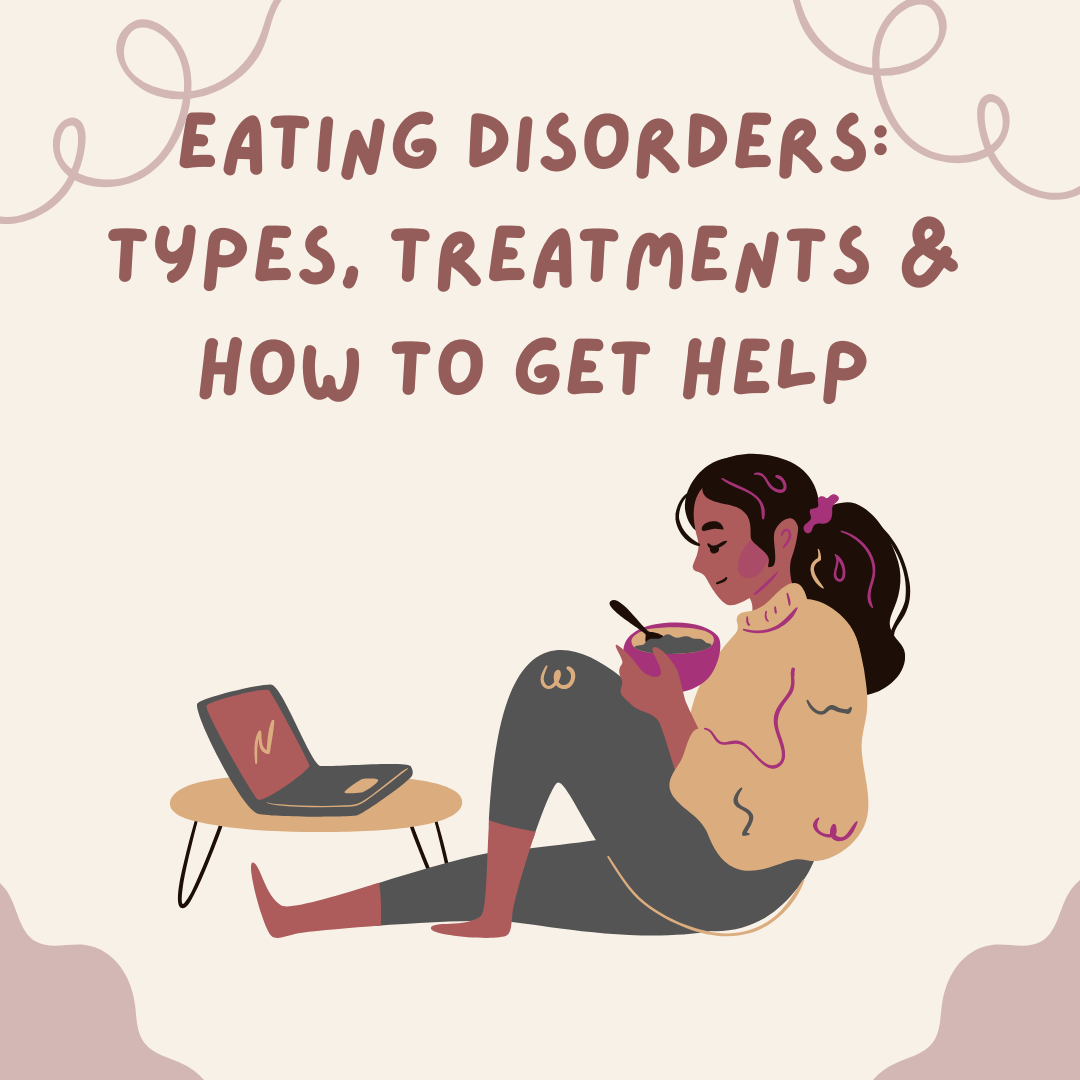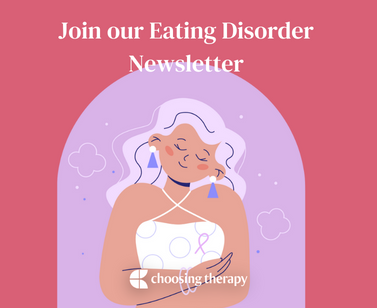Depression can trigger weight gain or weight loss. There are several contributing factors to depression and weight gain, such as eating more comfort foods and decreased physical activity and exercise. Most people who experience depression feel more tired than they used to and have less motivation to engage in things they once enjoyed.
Depression Is Treatable With Therapy Would you like to feel more happiness and joy? BetterHelp has over 20,000 licensed therapists who provide convenient and affordable online therapy. BetterHelp starts at $65 per week. Take a Free Online Assessment and get matched with the right therapist for you.
What Is Depression?
Depression stems from a low mood and feeling of sadness and hopelessness. It can come with feelings of tiredness, focusing on the negative, and thoughts of self-harm. Depression is marked by a chronic sense of low feeling even during a period of high anxiety.
Can Depression Cause Weight Gain?
There is a link between obesity and mental health issues. Both weight gain and weight loss can be depression symptoms. It’s unclear how common it is for depression to cause weight gain, as some studies indicate that depression is a predictor of obesity, but others show no such association.1
Depression in women and teen depression both see increased rates of weight gain, although there is no clear cause. Depression in men may present as weight gain as a result of depression, but they seem to be no more likely to have an increased BMI in the long-term, regardless of whether they have ever experienced depression.
Age, sex, and education all may play a role in whether you gain weight as a symptom of depression, but it does not seem that race or ethnicity are correlated with weight gain. The type of depression you experience may also be connected.
Depression & Weight Gain: Connections
Depression and weight gain have a lot of connections, including fatigue, loss of motivation, emotional eating, and inflammation.
Here are ways depression and weight gain are connected:
- Loss of motivation: fatigue and difficulty finding pleasure in activities you used to enjoy contribute significantly to lack of motivation. When you have no motivation, you’re more likely to turn down social plans, stay home, and stay in a state of rest.
- Elevated levels of cortisol: depression is associated with elevated cortisol, which promotes fat accumulation2
- Emotional eating: eating habits often change in light of emotional eating, which is often impulsive and helps ease in-the-moment feelings of sadness
- Slowing down: when you’re feeling down, your body might physically slow down. Slower movements or a slower walking pace can mean less physical activity throughout the day, keeping those emotional calories in your body.
- Inflammation: chronic stress caused by depression can lead to cellular inflammation, hormonal changes, and accumulation of fat2,3
- Social changes: depression often leads to decreased self-esteem and therefore less likelihood of seeing people you love or doing activities together
- Poor sleep: poor sleep is one of the leading causes of weight gain, and insomnia is a depression symptom1
- Lifestyle changes: you may be less apt to wake up early to exercise, have less energy to walk the dog, or give up gardening when the heaviness of depression sinks in. These changes in your daily routine can add up to weight gained as a result of inactivity.
- Diet cycles: if you find that you do tend to gain weight from depression or antidepressants, then you might find your eating habits in a never-ending cycle of trying to lose weight by dieting. Diets typically fail in the long-term and can be self-defeating.4
- Increased hunger: leptin, a hormone that regulates hunger, can increase during periods of depression, resulting in increased food intake and calories that can easily lead to depression-induced weight gain3
- Craving carbs: carbohydrates (like pizza, pasta, donuts) can increase your serotonin levels.5
When you feel down, your body looks to increase serotonin, which could mean eating more than your normal portion of carbs and lead to weight gain.
Help For Depression
BetterHelp – Get help from a licensed therapist. BetterHelp offers convenient and affordable online therapy starting at $65 per week. Free Assessment
Talkspace – Online Therapy With Or Without Insurance. Talkspace accepts many insurance plans including Optum, Cigna, and Aetna. Typical co-pay is $30, but often less. Get started
Can Antidepressants Cause Weight Gain?
In the short term of 6 months or less, antidepressants are not likely to cause weight gain.6 Long-term use of antidepressants and weight gain has been poorly studied, but the data suggest a statistically significant increase in weight.7 Different classes of antidepressants are more likely to cause weight gain than others.
If your medication is lifting your depression, some doctors may choose to prescribe an additional medication such as an amphetamine or Wellbutrin to combat the adverse effect of weight gain. It is unclear what the mechanism of weight gain is and whether the medication for depression itself causes weight gain, or if food cravings, lifestyle changes, or increased appetite lead to increased weight.
7 Ways to Manage Depression-Related Weight Gain
There are several ways to try and mediate depression weight gain, including changing medications, reducing stress, and managing your routines differently. Some weight gain may just be an effect of your medication for depression; discuss the pros and cons of being on your current medication with your doctor.
Here are seven ways to manage depression weight gain:
- Adjusting medication doses: sometimes the dosage you’re on just isn’t working quite right for you. Different people require different dosages to get the intended effects. Have that conversation with your doctor.
- Switching drugs: not all antidepressants are associated with weight gain; some are even associated with weight loss. If you think there’s a correlation between your weight gain and the medication you’re on for depression, discuss other options with your doctor.
- Eating healthy foods: while it is not a panacea of depression treatment, a healthier diet such as the Mediterranean diet is associated with a lower risk of depression. Given that healthier foods are often lacking in inflammatory ingredients, this could also lessen your body’s tendency to pack on weight when you’re depressed.8
- Eating more mindfully: eating mindfully helps your body slow down and process the food, including helping your mind to consider the quality of the food and experience in order to increase satisfaction without necessarily increasing food intake.4
- Increasing exercise: Exercise can help reduce depressive symptoms in adolescents and adults; it can also contribute to weight loss9,10,11
- Working with a dietician: a dietician can help you to manage caloric intake and nutrition, supplementing other steps to keep your depression weight in check
- Augmenting medications: antidepressants can be augmented with atypical antidepressant medications (e.g., Wellbutrin) to curb weight gain.12 Supplementing with a binge-eating medication such as Vyvanse may also be an option to discuss with your doctor.13
Struggling with your relationship with food? Do you find yourself constantly thinking about food or your body? It can be exhausting to have these thoughts. The good news is: you don’t have to feel this way. Take the first step towards healing by taking Equip’s free, confidential eating disorder screener. Learn more
How Therapy Can Help With Depression-related Weight Gain
Therapy can help you cope with depression symptoms, including weight gain. While there are many different depression treatments available, they may not all be right for you. Many therapists will incorporate several types of treatment vs. just one, which can be a helpful way to figure out what works best for you.
One of the most effective therapies for depression is cognitive behavioral therapy (CBT). It can help you to create new beliefs about yourself and implement corresponding behaviors to combat depression and weight gain. Behavioral activation, one strategy in CBT, can help you identify ways to get your body moving that increase meaning in your life and may lead to pleasurable feelings.
Acceptance and commitment therapy (ACT), another type of depression therapy, can also help you weigh your values to decide which symptoms and adverse effects feel bearable and which ones you’d like to change. All of these therapies can help introduce you to healthy ways to cope with changes your body may make while you’re feeling depressed, including weight gain, increased fatigue, or lower self-esteem.
How to Find a Therapist
Explore an online therapist directory in order to get help from a therapist who is licensed in your state and competent to work with you to battle the symptoms of depression. To make sure you’re getting someone who is a good fit for you, take a look at what they are trained to treat, what treatments they use, and how they can help you to set goals in therapy.
Final Thoughts on Depression & Weight Gain
Weight gain can be an unsettling and annoying symptom of depression. There are ways to lessen depressive symptoms, leading to less weight gain, as well as strategies to help you think about yourself and your changing body in healthy ways.
Additional Resources
To help our readers take the next step in their mental health journey, Choosing Therapy has partnered with leaders in mental health and wellness. Choosing Therapy is compensated for marketing by the companies included below.
Talk Therapy
Online-Therapy.com – Get support and guidance from a licensed therapist. Online-Therapy.com provides 45 minute weekly video sessions and unlimited text messaging with your therapist for only $64/week. Get Started
Online Psychiatry
Hims / Hers If you’re living with anxiety or depression, finding the right medication match may make all the difference. Connect with a licensed healthcare provider in just 12 – 48 hours. Explore FDA-approved treatment options and get free shipping, if prescribed. No insurance required. Get Started
Depression Newsletter
A free newsletter from Choosing Therapy for those impacted by depression. Get helpful tips and the latest information. Sign Up
Learn Anti-Stress & Relaxation Techniques
Mindfulness.com – Change your life by practicing mindfulness. In a few minutes a day, you can start developing mindfulness and meditation skills. Free Trial
Choosing Therapy Directory
You can search for therapists by specialty, experience, insurance, or price, and location. Find a therapist today.
Best Online Therapy Services There are a number of factors to consider when trying to determine which online therapy platform is going to be the best fit for you. It’s important to be mindful of what each platform costs, the services they provide you with, their providers’ training and level of expertise, and several other important criteria.

Eating Disorders: Types, Treatments & How To Get Help
If you or a loved one are dealing with an eating disorder, know you’re not alone. Treatment can significantly help improve thought patterns and symptoms that can contribute to eating disorders, and having a robust care team can be an effective prevention strategy long-term.







